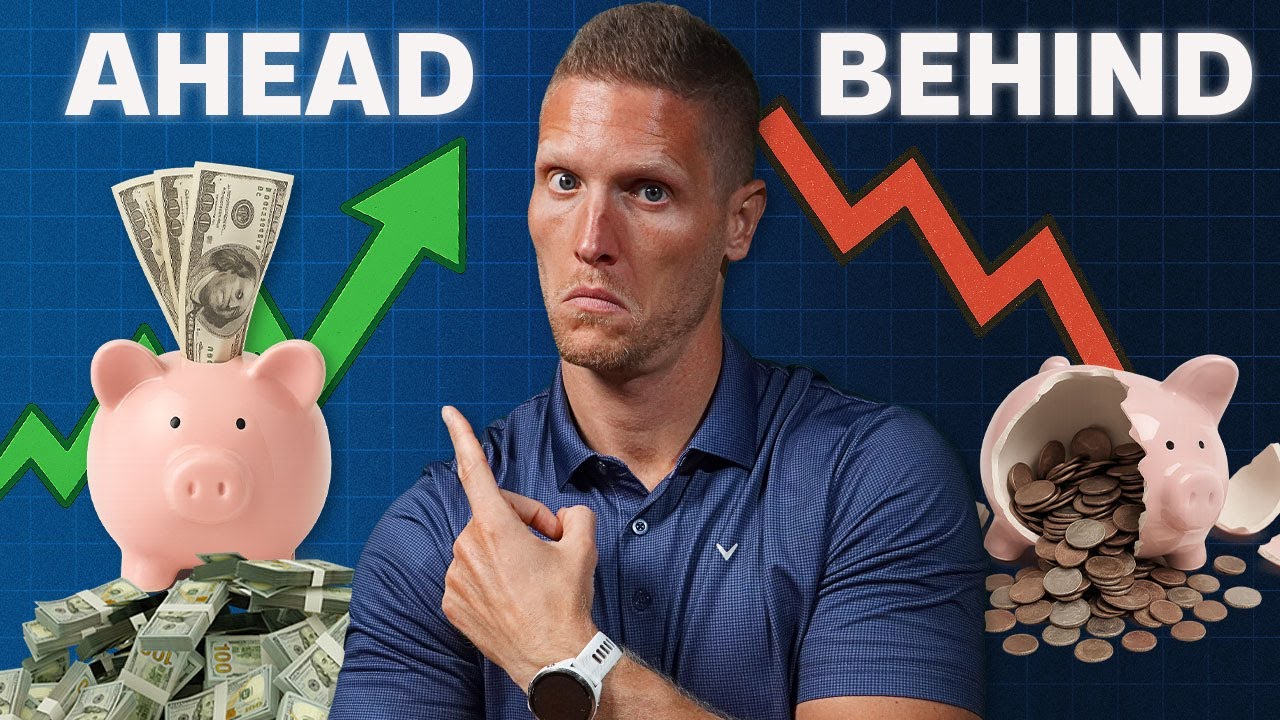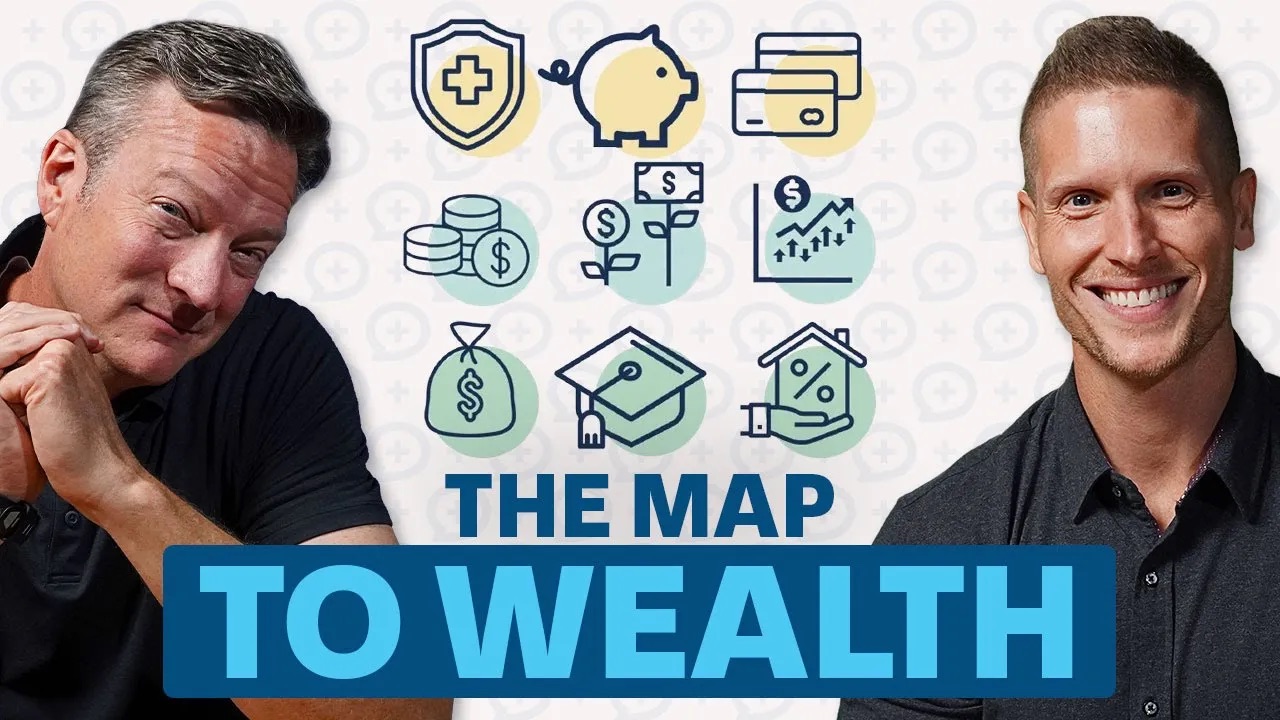Alright, Jay M’s question is up next. It says, “I have a six-month emergency fund in a high-yield savings account, but I’m wondering, with interest rates likely to drop this year, what are your thoughts on decreasing it to three months and putting that money in a treasury bond or CD ladder?”
Yeah, okay, so this, okay, I see where the question is going because we’ve had people ask us this, right? Like, when you look at interest rates on cash right now, they’re not at all-time highs, but they’re at high levels relative to recent memory. When you’re earning like 5% on your cash, that’s pretty remarkable, and people love this. They love the fact that every month they can see interest pouring in based on their savings accounts. But in true human fashion, we’re pessimists, and we’re negative, and we’re all like, “Oh, this isn’t going to stick around.” So, what should I be doing to think about locking in these higher rates? Is it something where I should begin looking at some sort of longer-term debt instrument or some sort of longer-term fixed-income instrument like a certificate of deposit or something like that?
Now, before I get into that, I want to back into the reason for having an emergency fund. Your emergency fund is not there to maximize return; it’s not there to optimize your financial life; it’s not there to really add tons of dollars to your army of dollar bills. Your emergency fund is there for emergencies. If something were to happen and you needed to have access to that money, you want to make sure that it is there and it is readily available for you to get to. Because what if you’re out of work tomorrow? You didn’t see it coming, something happens, you don’t have a job, and all of a sudden, you can’t find new employment, and then all these negative things happen. You want to make sure that your capital is there and liquid. So, before you think about anything that you are going to do or might do with your emergency fund, you need to make sure that you maintain access to it.
Because people who are saying, “Hey, I’m going to go lock it up in some bond,” or “I’m going to go do some fixed-income type instrument,” it doesn’t always mean that you’re going to be able to get to that cash when you need to get to the cash. So, now his question is, “Okay, if I think about something that I could still maybe get access to, did he say a CD?” I want to clarify there is a difference between access to cash versus actually having cash; that’s the point you were just trying to make. Just having access, meaning like, I’ve fallen into that trap before with the home equity line of credit on my equity in my house—even had a checkbook, had a debit card—it felt like cash when you have those type of things. And you mentioned like a trading portfolio—if you had bonds, stocks, those all on paper or in theory seem like access to cash, but they’re not actually cash.
Now, this is a unique question, though, because the things that Jay M threw out were kind of more cash equivalents because a CD is a cash equivalent. So, I think this is—I love this—is a financial mutant question; it’s nuanced. Sure, so I will tell you, I think it’s interesting that yes, I would keep three months probably in something that is close to cash. I mean, there’s no penalties, there’s no restrictions on you getting to it. But here’s what I think is kind of cool about CDs: if you cash a CD in early, you don’t really lose the principal. So, it’s still cash; cash is cash. But there’s going to likely be a penalty; you’re going to forfeit some interest or there’s going to be something if you don’t match holding it in there as long as the bank had provided. So, if you go on a two- or three-year CD to try to maximize, if you give it up too soon because you had an emergency or you had an opportunity that needed it, that’s going to have a penalty.
So, I’m actually going to surprise Jay M a little bit probably in the fact that I’m actually okay with, if you think you’re like, you take a quick needs assessment on your cash, and you say, “Look, I think my job’s in a stable position. I really don’t need a new car in the next three years. I see nothing big.” Yeah, if you want to go play around with CDs and create a ladder because interest rates probably will be going down, just be realistic. I wouldn’t go sign up for a five-year CD. I would probably keep it to go look at—you know, I always when I want to get a feel for what, and I’m sure you could do it on Schwab and Vanguard too, but Fidelity has a really cool dashboard with their new offerings list, and it’ll have like three months, six months, 12 months. It’ll go all the way out to a few years out—three or four years. You can kind of see where the rate inefficiencies are, but I’m okay if you want to maximize it because that is one of the things.
Rates probably—even as of last week—they nudged because we had a favorable inflation reading come through that there’s probably still three rate drops coming our way in the not-too-distant future. So, I’m okay with that because that’s still cash, but just know that these are—I don’t know if I’ll tell you personally, I’m not doing some of this because the hassle factor on the spread—that’s what I was going to say. The material, if we’re talking about three months of cash and you’re talking about short-term instruments less than two years, I would really come down to: is it worth it?
But is it worth it? Come on, we have to be transparent. You picked on me yesterday because you found out that I had a large sum of money just in the default money market mutual fund that they had at Fidelity, which was paying 4.75%. And you’re like, “You realize—” and I had another, I had two funds. I had one that required this level of buying, and it was paying 5.2%, and you’re like, “Brian, you realize how much you’re keeping in cash? You qualify for this one that was at 5.3%, 5-something like that, so it was even higher.” And then you held up the calculator, and you go, “You just cost yourself $700 in these first three, two months of the year.” And I was like, “Crud.” So, I mean, so I—but you and I do go through this hassle factor because I just bought the better version.
We actually placed the trade yesterday, and I bought the better version of the money market fund for my cash. So, I don’t—other financial means are doing this stuff too.
Yeah, if you find on that—so you can’t say it’s not worth the hassle, and then we’re doing this ourselves. Buying a money market mutual fund is so much easier than going out and buying CDs—that’s my—that’s mine.
When rates drop, it will be instantaneous that they will cut your rates. So, at least CDs let you kind of smooth out that changing period for the next few months.
My opinion: if you are a young person in the accumulation phase, my opinion—write this in pencil, don’t mark this down hard—this might not make a ton of sense for you. If you’re someone who’s closer to retirement or nearing retirement and you do have that 12, 18, 24 months of cash, I think that person who has a bigger cash stash maybe a little bit more justifiable for. But someone who’s early on in the accumulation, I just don’t want you majoring in the minors. I want you focusing on the stuff that actually has a big impact on your financial life.
You mentioned treasuries too, which we’re perfectly fine with. Treasuries are super safe, but the problem I will tell you, treasuries do trade every day, so just make sure you’re aware of where the maturity date is. The money will be provided to you on that, but if you buy something too far out on the treasury, there will be some swings that occur based upon interest rates. Now, hopefully with rates dropping, you’ll be the beneficiary of that rate drop, but I just want you to be aware that there are some daily price fluctuations with treasuries that you just need to be aware of.













